Life and Miracles of Sri Krishna Bhagawan: A Devotional Journey
Sri krishna: The God Who Sweated
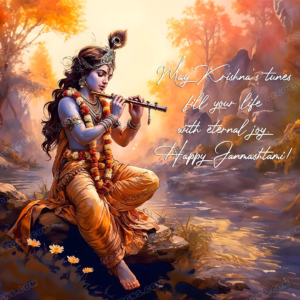
Mathura Prison, July 3228 BCE. The first thing Sri krishna felt was his mother’s tear hitting his cheek—warm, salty, human. No celestial choir sang. Only Kansa’s guards rattling chains outside. When Vasudeva placed him in the reed basket, prison dampness seeped into his swaddle. Divinity’s debut: shivering in a wet rag. Halfway across the Yamuna, a wave slapped his face. He inhaled river sludge, coughing for three days. Yashoda would forever call him “my river-sick boy.”
Sri krishna – Where Divinity Learned to Bleed
Scars Beneath the Butter (Age 3-10)
Theft wasn’t play—it was survival. During the drought of 3215 BCE, Nanda’s family ate one meal daily. When 6-year-old Krishna stole mangoes from Kansa’s orchard:
- Guards caned his soles raw
- He limped for a month
- Yashoda wept stitching his torn dhoti
“Hunger makes thieves of saints,” he’d whisper decades later.
The Acid Kiss of Aghasura (Age 8)
History remembers the demon’s defeat. Not the aftermath:
- Krishna scrubbing vomit from his arms for hours
- Dreaming of calf bones crunching in serpent acid
- Waking to bite his pillow to stifle screams
Radha found him hiding in a haystack, trembling: “The smell… it lives in my nose.”
Yashoda’s Rope: The Day God Broke (Age 10)
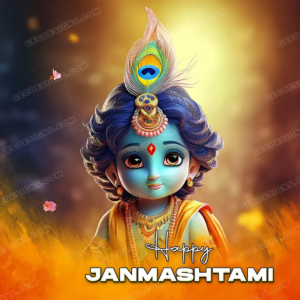
Tied to the grinding mortar for stealing ghee, he endured:
- Sun blisters on his neck
- Village boys pelting dung
- The worst insult: “Foster child! Abandoned by real parents!”
When Radha untied him at dusk, his wrists were rope-burned bloody. That night, he asked Yashoda: “Am I your real son?” Her hug lasted until dawn.
Adolescence – Love as a Wound That Never Heals
Radha’s Anklet: The Sound of Goodbye (3076 BCE)
At the Yamuna’s edge, 16-year-old Krishna clutched Radha’s hands:
“Come to Mathura. Be my queen.”
“You’ll marry royalty,” she laughed bitterly. “I’m just a milkmaid with cow dung under her nails.”
As he left, her silver anklet splashed into the river. For 84 years, he’d startle at ankle bells.
Rukmini’s Loneliness: The Queen of Ghosts
On their wedding night, Rukmini whispered:
“Do you wish she wore these jewels?”
His silence carved a canyon between them. Years later, finding Radha’s faded scarf in his armor, Rukmini burned it—then spent the night sobbing into the ashes.
The 16,100 Wives: Compassion’s Cage
The rescued princesses weren’t lovers—they were societal outcasts. Krishna built them:
- A library with 9000 scrolls
- A weaving cooperative
- A music school
Yet Princess Mitravinda’s diary reveals despair:
- “He dines with us weekly… asks about our studies… but his eyes scan the horizon. Always searching for a girl in a torn scarf.”
Fatherhood – When Gods Fail
Samba’s Rebellion (3041 BCE)
Leprosy devoured his son’s body. Krishna refused a miracle:
“Suffering sculpts souls.”
But palace maids spied him:
- Pressing Samba’s lesions to his own skin at midnight
- Whispering “Take my flesh”
- Vomiting afterward from helpless rage
“Fathers break easier than gods,” he told Arjuna.
Charu’s Blanket: The Weight of Absence (3033 BCE)
His infant daughter died sweating in his arms during a fever plague. For months, Krishna:
- Slept clutching her soiled blanket
- Banished wet nurses for “smelling like her”
- Snapped at sages: “I don’t want her soul—I want her sneeze!”
At her pyre, he collapsed. Servants carried him back, his fingers clutching a milk-stained rag.
Pradyumna’s Question: The Lie He Told (3022 BCE)
When his 8-year-old son asked “Did you kill demons as a boy?”, Krishna laughed:
“Just snakes and bad dreams, beta.”
That night, he washed his hands until dawn, scrubbing invisible blood.
War – The Cost of Cosmic Chess
Arjuna’s Collapse: Before the Gita (3138 BCE)
As Arjuna crumpled in the chariot, Krishna:
- Caught vomit in bare hands
- Wiped tears with his shawl
- Forced water between clenched teeth
Then came the scripture. Wisdom’s first tool is a washcloth.
Kurukshetra’s Aftermath: The Haunting
Post-war, Krishna:
- Washed Duryodhana’s brains from Bhima’s fists
- Pocketed a dead boy’s broken flute
- Ate cold barley from Karna’s stiff hand
- Scrubbed his hands until knuckles bled
“Victory smells like rotting intestines,” he told no one.
Draupadi’s Whisper: The Miracle Too Late
After saving her honor with endless sari fabric, she asked:
“Why not stop them before they tore my clothes?”
He had no answer. Years later, finding her scrubbing blood from her hair, he rasped: “Some miracles arrive shamefully late.”
Aging – Divinity’s Slow Dissolution
The 90-Year-Old King (3103 BCE)
- Hands shaking while blessing newborns
- Needing help to mount his chariot
- Nodding off during tax hearings
When grandson Pradyuman teased “Does God snore?”, he rasped: “Loudly… ask your grandmother.”
The Body’s Betrayal: How Sri krishna Die
His fatal weakness began prosaically:
- Years of barefoot walks cracked his soles
- Untreated blisters festered
- Calluses hid weeping ulcers
Jara’s arrow merely finished what time started.
Last Council: The Throne Room Confession
Three months before death, he stunned ministers:
“I failed you. Dwaraka’s wealth? Stolen temple gold. Our victories? Lies whispered to enemies. My only truth: I miss the smell of cow dung.”
The court transcript ends with “(uncontrollable weeping).”
Sri krishna Death –Final Humanization
The Arrow’s Sting: Not Fate, but Neglect
Resting under a neem tree, Krishna winced—not from Jara’s arrow, but from:
- Pus oozing in his sandals
- An ulcer on his heel
- The relief of finally resting
“Some deaths are slow suicides,” he’d once told Sudama.
Jara’s Tears: The Last Embrace
As the hunter sobbed over him, Krishna whispered:
“Brother… you didn’t kill a god… you ended a tired man’s walk home.”
Blood soaked Jara’s lap—warm, sticky, human.
Final Words: The Mother Sri krishna Never Forgot
His gaze drifted past trees:
“Tell Yashoda… her Kanha’s coming… butter’s under… third clay…”
The sentence died mid-breath. Flies circled the wound.
Sri krishna: The Man Beneath the Marble
Why We Recognize Ourselves in Sri krishna
| His Failure | Our Reflection |
|---|---|
| Chose duty over Radha | Promotions over love letters |
| Couldn’t stop the war | Silenced conscience for “peace” |
| Failed his clan | Family fractures left unmended |
| Died by accident | Life’s brutal randomness |
The Sacred Mundane: Sri krishna Hidden Habits
- Hated bitter gourd: Yashoda hid it in rice
- Feared dogs: After a stray bit his calf (scar remained)
- Snored: Rukmini’s letters confirm “like a monsoon drain”
- Forgot names: Called Draupadi “Subhadra” at her swayamvar
- Vomited before battles: Chronic anxiety
Sri krishna Legacy: Not Temples, but Tenderness
Centuries later, in Vrindavan’s dusty lanes:
- Mothers lick thumbs to wipe dirt from children’s faces—like Yashoda
- Lovers throw dupattas into rivers—like Radha
- Old men save butter sweets for grandchildren—like Krishna
Divinity lives where rituals end and raw humanity begins.
Sri krishna: The Birth of a Human God
On Krishna’s 125th death anniversary, an old potter in Mathura left:
- A clay bowl of butter
- A cracked flute
- A child’s rope-burned dhoti
Atop the shrine, he scrawled:
“Not God. Just a boy who never stopped missing his mother.”
In that offering—sticky with ghee and grief—Krishna finally became what he’d always been:
- A river-soaked infant.
- A thief with hungry eyes.
- A lover who chose wrong.
- A father who broke.
- A soldier haunted by crows feasting on corpses.
- An old man grateful for an arrow’s release.
Not a deity to worship.
But a life to weep with.
A mirror.
A friend.
Flawed. Finite. Flesh.
Human enough to save us all.
Exploring Confucius’s Early Life in the Lu State: Origins of a Philosopher
The Grain of Wisdom: How Confucius Failures Planted the Seeds of Eastern Civilization
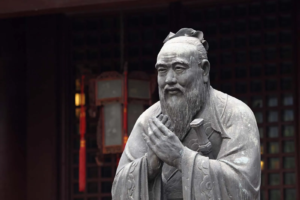
The rain fell in sheets that autumn morning in 497 BCE as Confucius stood at the Wei River’s edge, mud seeping through his straw sandals. Behind him: the homeland that had banished him. Ahead: fourteen years of wandering with only a dented carriage and his most loyal disciples. At fifty-three—an age when most scholars sought comfort—he faced a choice: surrender or become history’s most persistent teacher.He chose the river.
I. The Unlikely Sage: Before the Legend
The Boy Who Knew Hunger
Most statues show a serene elder, but young Kong Qiu was all sharp angles and restless eyes. Orphaned at three, he grew up in poverty so grinding that he:
- Worked as a shepherd (lost sheep often, distracted by books)
- Managed grain stores (fired for over-measuring to the poor)
- Attended funerals for meals, weeping genuine tears for strangers
“At fifteen, my heart was set on learning,” he later confessed—not as lofty declaration but as hunger. When wealthy peers mocked his patched robes, he shot back: “A gentleman is ashamed if his words exceed his deeds.”
The Grief That Forged a Philosopher
At twenty-three, his world shattered. His mother Yan Zhengzai—the woman who’d traded jade hairpins for his education—died. Confucius did something radical:
He buried her beside his father’s unmarked grave and sat in mourning for three years.
“Why waste prime years?” nobles scoffed. His answer reshaped Chinese culture: “Filial piety is the root of all virtue.” In that rain-soaked vigil, he discovered his life’s work—not governing kingdoms but healing human bonds.
II. The Marketplace Classroom: Wisdom in the Mud
Forget temple halls. Confucius taught where life happened:
The Butcher’s Stall Lesson
When disciple Zigong boasted of his haggling skills, Confucius led him to a butcher. “Notice how Master Ding’s blade never nicks bone?” he whispered. “He follows the Dao of the ox—honors its essence. You hack at prices, not truth.”
The Vinegar Tasting
Legend claims when Confucius tasted vinegar, he smiled—unlike Lao Tzu’s grimace or Buddha’s stoicism. Why? “He tasted life’s sourness not as punishment,” a disciple wrote, “but as essential seasoning.”
His Teaching Toolkit
- The Mirror Question: “When you see a worthy person, think how to equal them. When you see an unworthy, examine your own heart.”
- Radical Candor: To a ruler bragging about taxation: “There is starvation in your villages. Why are your robes embroidered?”
- Humor as Armor: When called “a leaking gourd” (useless but ornate), he laughed: “Better than a gourd that poisons!”
III. The Exile Years: When the Sage Was Human
The Night the Music Died
Confucius’s political exile began with betrayal. The Duke of Qi—whom he’d served loyally—sent him a “gift”: a troupe of singing girls to distract his principles. When Confucius protested, the Duke shrugged: “You’re too rigid for this age.”
That night, disciples spied him playing the qin (zither). The melody? A folk song about abandoned plows. “He wasn’t weeping,” wrote Yan Hui. “He was composing exile into wisdom.”
Near-Death in Chen
Trapped between warring states, Confucius’s group ran out of food. When fierce disciple Zilu demanded, “Must gentlemen suffer so?” Confucius—weak with hunger—responded:
“Yes. But ordinary people break under hardship. Gentlemen bend like bamboo and rise again.”
He then gathered disciples to recite poetry as their stomachs growled—a moment later memorialized as “the Chen starvation.”
IV. The Disciples: Flawed Vessels of Greatness
His true legacy wasn’t texts but transformed lives:
| Disciple | Flaw | Transformation |
|---|---|---|
| Yan Hui | Chronic poverty | Became “the vessel of virtue” who found joy in a bowl of rice |
| Zilu | Hot-tempered warrior | Died fixing his cap when attacked, choosing ritual over survival |
| Zigong | Wealth-obsessed merchant | Used fortune to build Confucius’s first school |
| Ran Qiu | Government climber | Resigned when ordered to tax the starving |
The Grief That Nearly Broke Him
When Yan Hui—his favorite—died young, Confucius did the unthinkable: wailed like a commoner. Disciples gasped at his loss of composure. His howl became philosophy: “Heaven has destroyed me! Destroyed me!“
Later, he confessed: “No one has moved me like Hui. He could hold half the truth and understand the whole.”
V. Confucius Kitchen as Sanctuary
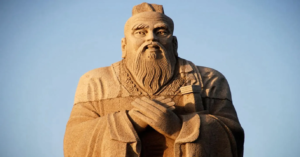
Few know Confucius was a food philosopher:
Confucius Culinary Commandments
- “Do not eat grain that has turned sour” (Metaphor for corruption)
- “Ginger must never be removed from the table” (Its warmth aids digestion like ritual aids society)
- “The perfect sauce balances all without dominating” (Like virtuous leadership)
When Duke Ling served him rancid pheasant, Confucius rose silently and walked out—a protest recorded as China’s first restaurant critique.
VI. Confucius Bitter End & Sweet After life
Deathbed Wisdom
At seventy-two, knowing death neared, he called disciples. But instead of grand pronouncements, he fretted:
- “Has anyone checked on Zilu’s widow?”
- “The rites for my burial must be simple—no jade.”
- “I dreamt I was sitting between two pillars. My time is done.”
His last recorded words? “The great mountain must crumble…“
The Resurrection No One Expected
Banned and burned by China’s first emperor, Confucianism should have died. Then emerged Dong Zhongshu—a Han Dynasty scholar who argued:
“A house needs beams. A soul needs rites. A nation needs Confucius.”
Emperor Wu listened. Soon, exam candidates memorized the Analects, mothers taught filial piety, and a persecuted teacher became the bedrock of East Asia.
VII. Why Confucius Humanity Matters Today
The CEO Who Learned from Yan Hui
When Alibaba’s Jack Ma faced his darkest failure in 2011, he reread Confucius’s mourning of Yan Hui: “True strength isn’t avoiding failure—it’s how you grieve losses and regrow.” He rebuilt using Confucian team ethics.
The Modern “Rites” We Crave
Confucius’s li (rituals) weren’t empty traditions but “social grammar.” Today’s equivalents?
- Japanese tea ceremonies creating presence
- Family dinners without phones
- Work cultures valuing courtesy over disruption
Confucius Greatest Teaching Was Flexibility
Contrary to stereotypes, Confucius was no rigid traditionalist. When asked, “Should we repay hatred with virtue?” he countered: “Then with what will you repay virtue? Repay hatred with justice, virtue with virtue.”
Confucius Crooked Pine: A Final Metaphor
On Qufu’s temple grounds grows a cypress Confucius planted. Twice destroyed, it always resprouts from the roots—gnarled, asymmetrical, alive. Like his wisdom:
- It bends in political storms but doesn’t break
- Its seeds travel farther than expected (Vietnam, Korea, global boardrooms)
- It grows toward light but knows value lies in deep roots
“A gentleman is not a pot,” Confucius once said. Meaning: Don’t be a decorative container. Be living, adaptable, essential.
Epilogue: Your Confucian Moment
That meeting where you bit back anger? That was ren (benevolence).
When you taught a junior colleague patiently? That was xiao (mentorship as filial piety).
Your quiet insistence on integrity? That’s yi (righteousness).
Confucius lives wherever we choose:
- Ritual over rush
- Roots over trends
- Reciprocity over exploitation
His ultimate lesson?
“We are all exiled rivers carving new paths home. The sage is just the one who remembers the source.”
Sources Reimagined:
– Analects: Translated not as scripture but as workshop notes from a struggling teacher
– Sima Qian’s Records of the Grand Historian: Read for emotional subtext between lines
– Confucius: The Secular as Sacred by Herbert Fingarette (1972): Key modern interpretation
Why Is Aristotle Still Studied Today? A Timeless Thinker’s Relevance
The Soul Behind the Sword: Aristotle, Alexander, and the Human Drama That Shaped History
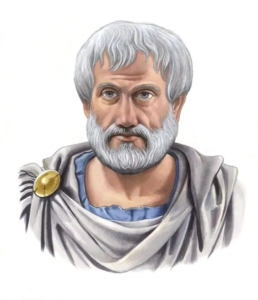
The stone steps of Mieza were still cool with morning dew when 13-year-old Alexander sprinted up the path, leather sandals slapping against marble. In the shadowed grove, his new tutor sat waiting—a man whose intense gaze seemed to see past the prince’s fine tunic to the restless spirit beneath. Aristotle didn’t rise like other courtiers. Instead, he pushed a clay tablet across the stone bench: “Why should a king fear philosophy?”
Young Alexander froze. This wasn’t the groveling scholar he’d expected. This man demanded engagement.
“Philosophy reveals shadows in the soul,” Aristotle continued softly. “Do you fear what we might find in yours?”
Alexander’s hand hovered over the stylus. In that charged silence, history held its breath.
I. The Classroom Where Legends Were Human
The Boy Behind the Legend
Beneath Aristotle’s stern exterior lay unexpected tenderness. He noticed how Alexander’s eyes lit up at Homer’s battle scenes but dimmed during mathematics. The philosopher adapted—using spear angles to teach geometry, calculating supply routes to demonstrate arithmetic.
“Your father sends reports,” Aristotle murmured one afternoon as Alexander struggled with ethics. “He says you weep after sacrificing your favorite stallion to the gods.”
Alexander flushed crimson. “A king shouldn’t—”
“—shouldn’t feel?” Aristotle interrupted. “Even Achilles grieved Patroclus. Tears water the roots of courage.”
The Mentor’s Hidden Struggles
Unknown to Alexander, Aristotle was grieving too. Letters from Athens told of his wife Pythias’ worsening illness. Some nights, the great philosopher sat alone in Mieza’s olive groves, whispering verses from his lost love’s favorite poem:
“As the swallow’s cry pierces the dusk,
So your absence cuts deeper than Persian steel…”
He channeled this pain into teaching. When Alexander rashly declared “I’ll conquer all lands!”, Aristotle didn’t lecture. He brought out a tortoise.
“Observe,” he said, placing the creature in Alexander’s palm. “Its world is this hand. Does it rage against its limits? Or master the terrain it’s given?”
II. Aristotle: When Love Collided With Principle
Aristotle – Wedding That Broke a Father’s Heart
Alexander’s 327 BCE marriage to Roxana wasn’t just political theater. The Macedonian court gasped when he knelt to wash her feet—a Persian groom’s ritual. Aristotle received the report in Athens, his hand trembling as he read:
“He wore striped trousers like a barbarian prince. Kissed her before the altar like a commoner.”
That night, Aristotle poured unmixed wine—a breach of his own moderation rules. He pictured the fierce boy who’d once whispered: “Your lessons are my armor.” Now that boy was erasing every boundary Aristotle held sacred.
The Terrible Silence
After Alexander executed Aristotle’s nephew Callisthenes for opposing Persian customs, the philosopher didn’t rage. He sent no condemnation. He simply stopped writing.
For months, Alexander awaited his mentor’s counsel as he marched through Hindu Kush. None came. At night in his campaign tent, the conqueror of nations would unroll a battered papyrus—Aristotle’s notes on virtue—tracing the ink strokes like a blind man reading Braille.
General Ptolemy found him once, weeping over the scroll. “He was my compass,” Alexander choked. “Now I navigate by dead stars.”
III.Unexpected Legacies
What Alexander Taught Aristotle
The philosopher privately revised his life’s work after seeing Alexander’s multicultural army thrive. In later editions of Politics, he softened his claim that “barbarians are slaves by nature”, adding:
“Yet as water shapes itself to any vessel, so may human nature exceed its origins when touched by noble instruction.”
The Keepsakes That Spoke Louder Than Words
When Alexander died, his personal effects included:
- Aristotle’s annotated Iliad, bloodstained at Gaugamela
- A pressed carnation from Mieza in a bronze case
- A child’s wax tablet with Aristotle’s handwriting: “Courage balanced by wisdom“
Meanwhile, in Aristotle’s study, servants found strange artifacts: a Bactrian saddle, a sketch of Indian pepper plants, and a small jar labeled “Dust from the Royal Road—sent by A.”
IV. The Last Lesson
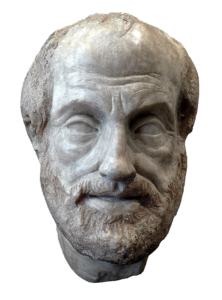
Aristotle was gathering figs when the messenger came. The old philosopher listened silently to news of Alexander’s death, then continued placing fruit in his basket with meticulous care. Only when alone did he break—clutching a letter Alexander sent years earlier:
“Master—
The Indus crocodiles are armored like your tortoise but eat goats whole. I’ve enclosed teeth. Are they animals or demons? Your answer still guides me, even when I disobey…”
That night, Aristotle added a codicil to his will: “Bury me with the box of Macedonian stones.” Inside were 32 river-smoothed pebbles—one for each year of his most brilliant, wayward student’s life.
V. Why Their Story Haunts Us
We see ourselves in them:
- The teacher who poured his soul into a student, only to watch him become a stranger
- The prodigy desperate to make his mentor proud, yet compelled to find his own path
- The devastating truth: that loving someone means releasing them to become who they must be—even if it breaks your heart
Their final lesson wasn’t in scrolls or conquests, but in the unbearable cost of growth. Aristotle’s real legacy wasn’t the empire Alexander built, but the moment the dying conqueror whispered:
“I should have answered his last letter…”
Aristotle Echo in Your Life
Every mentor-student relationship lives in Aristotle and Alexander’s shadow. That professor whose approval you still crave. The intern whose brilliance frightens you. The child outgrowing your wisdom.
True mentorship isn’t about control. It’s the courage to plant seeds in soil you’ll never see—and love the forest that grows wild in directions you never planned.
Aristotle knew this when he wrote his last known words about Alexander:
“We are midwives to destinies greater than our dreams. The pain of release is the price of immortality.”
In the end, the conqueror and the philosopher both learned:
The greatest empires aren’t territories, but the human connections that outlive ruin.
Plato’s philosopher-king vs democratic leadership
The Leader We’re Starving For (But Would Never Elect)
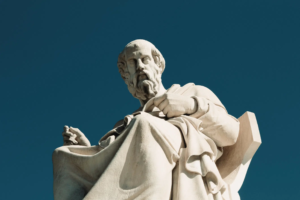
Why Plato 2,400-Year-Old Pipe Dream Still Stabs Us in the Chest
You feel it in line at the grocery store.
Watching the price of bread climb while a CEO brags about “record profits.”
You feel it at the town hall meeting.
Where the developer’s lawyer whispers to the mayor who won’t meet your eyes.
You feel it when the news cuts away from flood victims to a polished liar smirking at a podium.
That hollow ache behind your ribs?
Plato named it.
His story starts with betrayal.
Not a philosophical disagreement – a murder.
His mentor, Socrates – the original “guy who asked too many questions” – was sentenced to death. By Athens. By a democracy. The charges? “Corrupting the youth” (translation: teaching them to think) and “impiety” (translation: questioning the powerful).
They made him drink poison.
For telling truths that stung.
This wasn’t academic.
It was trauma.
The system murdered Plato’s moral compass.
It broke something fundamental in him.
(It’s breaking something in you right now, isn’t it?)
The Ugly Truth He Couldn’t Unsee
Plato surveyed the wreckage of his world:
- “Democracy”: Just mob rule jacked up on sweet-talkers and fear-mongers. Think viral misinformation, but with togas. The crowd cheered for wars they didn’t understand and turned on heroes overnight.
- Oligarchs: Spoiled rich kids playing Game of Thrones with real lives. Using laws like lockpicks on the public treasury. Sound familiar?
- Tyrants: Bullies with absolute power and the empathy of a brick. Rising to power on waves of manufactured rage.
His diagnosis wasn’t complicated. It was devastating:
“The rot isn’t in the rules. It’s in the souls making them. Feed a broken soul absolute power? You get hell. Until rulers have wisdom and actual character, we’re all just rearranging deck chairs on the Titanic.”
His proposed cure was radical, almost laughable in its purity:
Find the wisest, kindest, most brutally honest person you know… and force them to be in charge.
Call them the Philosopher-King.
(History’s awkward cough: It’s never happened. Not once. Not for long.)
Forget the Toga Party (Seriously, They Didn’t Even Wear Them Like That)
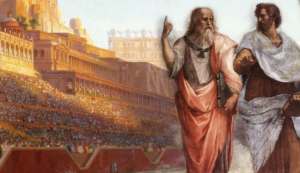
This isn’t about some marble statue muttering about clouds. Plato’s ideal leader is shockingly, uncomfortably human:
| The Leaders We Get | The Leader Plato Wanted | Why It Feels Like a Kick in the Teeth |
|---|---|---|
| 🐺 Power Junkies | 🚫 Power Allergics | Our system rewards narcissists who campaign like it’s their destiny |
| 🎭 Charisma Salesmen | 🔍 Truth Addicts | Ours spin reality; theirs would rather die than distort it |
| 📊 Data Bots | ❤️ Soul Gardeners | They see policies as people drowning, not statistics to manipulate |
| 💰 Perk Collectors | ✂️ Privilege Surgeons | Ours exploit loopholes; theirs would burn the system that allows them |
| 🎯 Short-Term Grifters | 🌳 Generational Caretakers | Ours mortgage our future; theirs plant trees whose shade they’ll never sit under |
3 Brutal Realities of a Real Philosopher-King
1. They’d Genuinely Rather Be Scrubbing Toilets
Imagine forcing a brilliant cancer researcher to quit the lab to become a DMV clerk. That’s the agony of a true Philosopher-King taking power. Ruling isn’t their dream – it’s a moral life sentence. Their superpower? They find zero joy in dominance.
→ Why it cuts so deep: We watch candidates spend billions lusting after a job a decent person would dread. That’s not ambition. That’s pathology.
2. Plato: They’ve Seen Behind the Curtain
Plato’s Cave is now: We mistake curated shadows (TikTok trends, news spin, political theater) for reality. The Philosopher-King? They’ve stumbled into the blinding, terrifying light of actual truth. They’ve seen the gears of greed, the wiring of hate, the machinery of exploitation – and they can’t unsee it. Every policy, every word, bleeds from that unvarnished, painful clarity.
→ Why we look away: Our leaders profit from keeping us chained in the cave. Asking us to face reality? That’s bad for business.
3. They’ve Washed the Blood Off Their Hands
Before they’re allowed near ultimate power? 15 years in the human trenches:
- Mediating screaming matches between families feuding over a stolen chicken 🐔
- Kneeling in the mud holding a teenager bleeding out from a stupid street fight 🔪
- Getting spat on by a crowd for closing a beloved but toxic factory poisoning their kids ☣️
There is no theory of justice that survives first contact with a mother wailing over her child’s body.
→ Why we’re cynical: Our elites glide from gated communities to green rooms, insulated from the consequences of their decisions.
Plato: Why This Ancient Idea BURNS in 2024
We’ve stopped believing good leaders are even possible.
Our collective surrender smells like:
- Memeing politics like a dystopian sitcom instead of storming barricades 🤡
- Saying “they’re all corrupt” while checking the box for the less corruptible liar ✔️
- Treating voter suppression and gerrymandering like “politics as usual” instead of the democracy-killing cancers they are 🧬
But when the roof caves in – when hospitals overflow, when cities burn, when the water rises – we scream into the void for EXACTLY what Plato described:
- A leader who cares more about your dying grandmother than their fucking approval rating
- Someone whose moral compass doesn’t have a “spin cycle” setting
- A servant who sees power as a crushing responsibility, not a golden ticket
Plato Where the Dream Flickers
Look closer than the headlines. The DNA survives in the cracks:
The Ragged Saints:
- The overworked public defender who knows her client is guilty but fights to expose the crooked cop who framed him anyway.
- The retired steelworker spending his pension busing neighbors to the polls in a county trying to silence them.
- The small-town librarian facing down armed protesters because some kid needs to see their face in a book and feel less alone.
How You Spot the Spark:
- ✅ They flinch at praise (Unlike our preening leaders)
- ✅ They talk about “we,” never “I” (Unlike our raging narcissists)
- ✅ Their eyes hold tired grief, not ambition’s gleam (The look of someone who sees the cost)
They aren’t Philosopher-Kings.
They’re underpaid, overmatched, and scared shitless.
But they carry the sacred rage:
Refusing to let the light go out.
The Uncomfortable Truth Plato Forces Down Our Throats
We don’t need perfect leaders.
We’ve just weaponized our apathy.
Plato’s real power isn’t some dusty blueprint.
It’s the cracked mirror he slams in front of us:
“You share the outrage porn clip but skip the town hall meeting.
You complain about ‘politicians’ while taking the dark money PAC’s campaign mailer straight to the recycling bin.
You say ‘my vote doesn’t matter’ in a system designed to make you believe it.
You are complicit in your own chains.”
His Philosopher-King isn’t a solution.
It’s an indictment.
A scream trapped in history’s throat:
“When did you trade your hope for this numb, compliant despair?”
Plato The Ghost You Can’t Exorcise
We’ll never get Plato’s perfect leader.
Corruption’s gravity is too strong.
Human nature’s too flawed.
The system’s too rigged.
But that raw, screaming hunger in your chest?
That refusal to accept that grifters and fools deserve to rule us?
That midnight fury when you watch another lie go un
Jr ntr biography
The Fire Within: How Jr NTR Became the Soul of Telugu Cinema

Chapter 1: The Boy Who Carried a Mountain
The gurukul floor feels like hot coals under 6-year-old Jr ntr bare feet. “Again!” barks his Kuchipudi guru. Blood seeps through his cotton practice socks – “NTR grandson bleeds the same red,” the teacher remarks coldly. That night, his mother Shalini tends to his blisters: “Why do you do this, kanna?” He doesn’t speak. Just clutches a framed photo of grandfather NTR Sr. – his silent answer.
At St. Mary’s College, classmates whisper: “He ate lunch alone today.” The isolation isn’t rejection – it’s reverence. “They called me ‘Little NTR’ like I was a temple idol, not a boy,” he’d later confess. His only refuge? The abandoned projection room where he’d watch his grandfather’s films, mouthing dialogues until his throat burned.
Unseen Moment (1995):
After winning Best Child Artist for Ramayanam, he hides the trophy in a closet. “If I celebrate, grandfather will think I’ve peaked,” he tells his pillow that night.
Even then, Tarak’s silence wasn’t emptiness – it was pressure crystallizing into purpose. Every skipped cricket match, every lonely lunch, was a trade he willingly made for a seat in the shadows of greatness.
Chapter 2: Broken Bones & Broken Dreams
2001: The Ninnu Choodalani failure cuts deeper than reviews. At a petrol station, an elderly man recognizes him: “NTR garu would’ve never made such trash.” Tarak drives away – and vomits by the roadside.
The Accident’s Aftermath (2009):
His hospital room becomes a prison of doubt. When Rajamouli visits, he finds Tarak staring at his trembling hands: “What if I never act again?” The director slams a script on his bed – Maryada Ramanna. “Read. Don’t quit.” That night, Tarak struggles to turn pages with bandaged hands. His wife Lakshmi reads aloud as he mouths the lines like a prayer.
In those months, every movement was a war – standing felt like a stunt, smiling felt like a betrayal to the pain. But he learned that broken bones heal faster than broken belief.
Chapter 3: Love in the Ruins
Their courtship was no fairy tale. Lakshmi Pranathi, an economics student, rejected his first three proposals. “I saw the circus around him,” she admits. He won her during his darkest hour – visiting daily during his accident recovery, reading him stock market reports to distract from pain.
2014: Holding newborn son Abhay Ram, Tarak weeps: “I never had a normal childhood. This one will.” He institutes family rules:
- No film talk at dinner
- Sundays at their Brindavanam farmhouse – kids covered in mud, Tarak cooking pulihora
- “When Papa cries in movies, is he sad?” Abhay once asked. Tarak’s reply: “No kanna. He’s remembering how lucky he is to have you.”
Fatherhood didn’t just soften him – it anchored him. Fame could be fleeting, but the giggles of his boys were non-negotiable constants.
Chapter 4: Blood on the Dance Floor

RRR’s “Naatu Naatu”: The Untold Sacrifice
- Day 3: He collapses from heat exhaustion. IV fluids administered behind a haystack.
- Day 7: His dance shoes fill with blood from burst blisters. “Tape them tighter,” he orders.
- Day 12: Co-star Ram Charan finds him sobbing in a porta-potty. “I’m failing everyone.” Charan’s response: “Then fail forward. But dance.”
The Oscar Aftermath:
As “Naatu Naatu” wins, the camera captures his smile. What it misses: His fingers tracing his father’s photo in his pocket. Back in Hyderabad, he visits his father’s grave at dawn: “Nanna, we did it.” Leaves the Oscar statuette replica beside the headstone.
The world saw a viral hook step. Tarak felt the phantom ache of every blister, every tear, every silent goodbye whispered to his ghosts.
Chapter 5: The Hidden Battles
The Body Wars:
His 2023 physique sparked “Ozempic” rumors. Truth:
- 3:30 AM alarm for cryotherapy (-140°C) to reduce inflammation
- Lunch: Boiled horse gram with tears – “Tastes like regret” he jokes bitterly
- Physical therapist’s note: “Left knee cartilage 60% degraded. Right shoulder recurring dislocation.”
The Panic Attacks:
After his father’s death, crowded sets trigger anxiety. His coping ritual:
- Lock himself in makeup van
- Watch home videos of his sons
- Chant “I am Tarak. Just Tarak.” 10 times
Crew Secret:
During Devara shoots, we’d hear him whispering through the van walls. We pretended not to notice.
Chapter 6: Ghosts & Glory
2023: Receiving the Padma Shri, he spots an old critic who once wrote “The NTR legacy dies with this boy.” Backstage, he embraces the man: “Your words fueled my fire.”
The Ritual:
Before every premiere, he visits three places:
- Ramanaidu Studios (where grandfather scolded him at age 8)
- Suryapet accident site – leaves jasmine flowers
- Local tea stall – pays for 100 strangers’ chai
Every gesture is a quiet rebellion – proof that you can carry ghosts without letting them crush you.
Epilogue: The Man in the Mirror
Hyderabad, 3 AM. The world’s most expensive mirror (₹22 lakh, Swiss-made) reflects his shirtless torso for War 2. Scars map his journey:
- Rib fracture lines from 2009 accident
- Burn mark from Temper’s climax
- Faded henna from his sons’ last birthday
He touches the glass: “Who are you today? Bheem? Daya? Or just Tarak?”
Suddenly, 4-year-old Bhargav sleepwalks into the room, clutching a toy tiger. Tarak sweeps him up, scars forgotten. “Papa’s here, chinnu.” In that moment – no megastar, no legacy. Just a father’s whisper against his son’s hair.
Final Revelation:
His mansion has one locked room. Inside:
- Bloodied Naatu Naatu shoes
- Ninnu Choodalani negative reels
- Father’s broken wristwatch from the accident
“I keep my ghosts close,” he explains. “They remind me I’m still human.”
The Unseen Table: Anatomy of a Warrior
| His Scars | Their Story | What He Learned |
|---|---|---|
| Left Palm | Simhadri axe-training cut | “Pain is temporary. Panic is forever.” |
| Right Knee | RRR jump gone wrong | “Pride breaks bones. Humility heals.” |
| Collarbone | 2009 accident shard | “Airbags fail. Family doesn’t.” |
| Vocal Cords | Aravinda Sametha’s roars | “Your voice isn’t for screaming – it’s for being heard.” |
“They call me Young Tiger. But tigers are solitary. I’m just a wounded housecat who learned to roar for those who believed in me.”
– Jr NTR to his sons, 2024
Edward Jenner Biography
Edward Jenner: The Country Doctor Who Defied Death
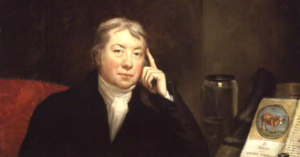
The damp hay scent hung heavy in Sarah Nelmes’ dairy barn as Blossom shifted in her stall. Angry red blisters bloomed on the milkmaid’s weathered hands – badges of her trade. “Don’t fret over spots, Doctor,” she told the observing physician, wincing as she squeezed a cowpox pustule. “These keep the speckled monster away.” For Edward Jenner, this moment crystallized a truth whispered in Gloucestershire farmsteads for generations – a secret that would ignite humanity’s greatest medical triumph.
When Death Walked Among Us
Imagine a world where:
- Parents avoided naming newborns until smallpox passed through town
- 30% of infected adults died screaming in fever-soaked beds
- Survivors faced blindness, disfigurement, or infertility
- Egyptian mummies (1156 BC), Mozart, and Abraham Lincoln bore its scars
In 18th-century Europe, the “speckled monster” killed 400,000 annually. During the 1721 Boston epidemic, a bomb crashed through Cotton Mather’s window for promoting inoculation. This was the apocalyptic landscape young Jenner inherited – a world where church bells tolled ceaselessly and gravediggers worked through the night.
The Fossil Hunter’s Apprenticeship
Born May 17, 1749, in Berkeley’s stone vicarage, Edward was the eighth of nine children. While his brothers pursued clergy careers, young Jenner wandered the Cotswold hills with a hand-stitched leather specimen bag. His fascination with nature was revolutionary:
“He’d return with pockets full of fossils and questions that vexed our tutors,” his brother Stephen later recalled. “Why do cuckoos steal nests? Why do salmon change color?”
At 14, Jenner began his medical apprenticeship under surgeon Daniel Ludlow. Here, he first heard dairy workers’ casual boasts: “Never fear the pox – cowpox kissed me as a lad.” The observation lodged in his mind like one of his beloved fossils.
His London mentor, the brilliant surgeon John Hunter, ignited Jenner’s scientific rigor. Hunter’s legendary command – “Don’t think – try!” – became Jenner’s north star. Their 20-year correspondence reveals Hunter’s pivotal role:
“Why speculate on the cowpox matter? Test it. But for God’s sake, measure twice and cut once.”
– John Hunter’s letter, 1785
The Garden That Changed Humanity
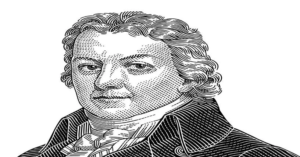
May 14, 1796. Golden light streamed into Jenner’s garden surgery as he faced eight-year-old James Phipps, his gardener’s son. On a lancet lay fluid from Sarah Nelmes’ cowpox blisters – harvested from Blossom, whose horns now hang in the Royal College of Surgeons.
Jenner hesitated. Variolation (deliberate smallpox infection) killed 2% of subjects. If wrong, I murder this child.
He made two scratches on James’ arm.
The Agonizing Wait:
- Day 3: Redness appears
- Day 7: Fever spikes. James shivers under quilts
- Day 9: A cowpox pustule forms – “Perfect specimen!” Jenner notes
- Day 14: Full recovery
Six weeks later, the terrifying test. Jenner injected fresh smallpox matter into the boy. When James didn’t sicken after 48 hours, the doctor sank to his knees. The milkmaids’ wisdom was real.
Anatomy of a Backlash
Jenner’s 1798 report sparked fury from unexpected quarters:
1. The Satirists:
James Gillray’s infamous cartoon “The Cow-Pock” depicted vaccinated patients sprouting horns and hooves. Pamphlets warned: “Will your children low at midnight?”
2. The Clergy:
Reverend Rowland Hill thundered: “Vaccination is Satan’s work! God sends smallpox to punish sinners!” Jenner responded quietly: “Does God not also send cows?”
3. The Medical Establishment:
Dr. Benjamin Moseley warned in Medical Transactions: “Bestial madness! Englishmen will soon graze in fields!” Royal Society President Sir Joseph Banks dismissed Jenner as “a provincial dilettante.”
4. The Variolators:
Surgeons like William Woodville – who made £3,000 annually from variolation (£300,000 today) – spread rumors of vaccine deaths. When Jenner challenged him to public trials, Woodville declined.
The Vaccine Underground
Facing rejection, Jenner transformed his Berkeley home into a global vaccine hub:
Ingenious Distribution:
- Preserved cowpox matter between glass slides sealed with beeswax
- Threaded dried vaccine-soaked threads through ivory plates
- Shipped kits as “anatomical specimens” to evade customs
The Balmis Expedition (1803):
In a humanitarian mission funded by King Carlos IV, 22 orphan boys sailed from Spain to the Americas. Physician Francisco Balmis vaccinated two boys sequentially:
- Boy A received fresh cowpox
- When Boy A’s pustule matured, Boy B was vaccinated
- This “arm-to-arm” chain kept the vaccine alive across oceans
“We are but links in a living chain,” wrote Isabel Zendal, the nurse overseeing the orphans. “Their small arms carry the hope of continents.”
The Unseen Revolution
Vaccination’s triumph unfolded not in palaces, but in suffering communities:
Boston, 1800:
Dr. Benjamin Waterhouse vaccinated his son Daniel with Jenner’s serum. When the boy resisted smallpox infection, 900 citizens lined up at Harvard Medical College. Reverend Cotton Tufts reported: “The Angel of Death has passed over our houses.”
Vienna, 1801:
Emperor Francis II’s daughter contracted smallpox. After court physicians failed, Jenner’s vaccine arrived via diplomatic pouch. Her recovery birthed Europe’s first national vaccination program.
Native America, 1803:
Shawnee Chief Black Hoof traveled 700 miles to request “the white man’s healing water.” When smallpox struck his vaccinated tribe, he sent Jenner a wampum belt: “Your medicine speaks truth.”
Edward Jenner: Science Behind the Miracle
Jenner’s genius lay in observation over theory. Though he knew nothing of viruses or immune cells, his notes reveal astonishing insights:
Key Discoveries:
- Cross-Species Immunity: Cowpox protected humans despite being bovine
- Durability: One inoculation granted lifelong protection
- Transferability: Vaccine could pass human-to-human indefinitely
- Safety: Cowpox caused mild symptoms vs smallpox’s 30% mortality
Edward Jenner: Variolation vs Vaccination (1799)
| Factor | Variolation | Vaccination |
|---|---|---|
| Source | Human smallpox | Cowpox lesions |
| Mortality | 1-2% | Near 0% |
| Contagious? | Yes (spread smallpox) | No |
| Protection | Temporary | Lifelong |
| Cost | £5 (£500 today) | Free (Jenner’s vow) |
Edward Jenner Legacy in Our Veins
1. The Ripple Effect:
- 1885: Pasteur uses Jenner’s method for rabies vaccine
- 1955: Salk polio vaccine follows his biological model
- 2020: mRNA COVID vaccines employ his principle – train immune systems safely
2. Modern Echoes:
Anti-vaccine protests in 1802 London mirror today’s movements. Jenner’s response remains relevant: “Facts must be gathered patiently, then shown with clarity and compassion.”
3. Living Memorials:
- The World Health Organization’s flag features a staff with a vaccination needle
- Asteroid “5164 Jenner” orbits between Mars and Jupiter
- His Berkeley home is now a museum where visitors can stand in the garden where James Phipps was vaccinated
Edward Jenner: Quiet Grave That Speaks Volumes
On January 26, 1823, Jenner died of stroke in his library. He’d refused patents, writing: “I shall not make merchandise of human life.” His final estate: £25,000 – less than variolators earned in a decade.
In Berkeley’s St. Mary’s Churchyard, a simple plaque reads:
“The Physician of Humanity.”
Today, Jenner’s original lancet rests in London’s Science Museum. Near it lies a milkmaid’s pay ledger from 1796 – Sarah Nelmes earned 3 shillings weekly. Two humble tools that saved 300 million lives.
As you scroll past vaccination reminders, remember: every syringe embodies Jenner’s courage. His story whispers that the next miracle might hide in plain sight – in a farmer’s field, a child’s question, or the hands of those society overlooks. The greatest discoveries begin not with “Eureka!” but with “What if…?”